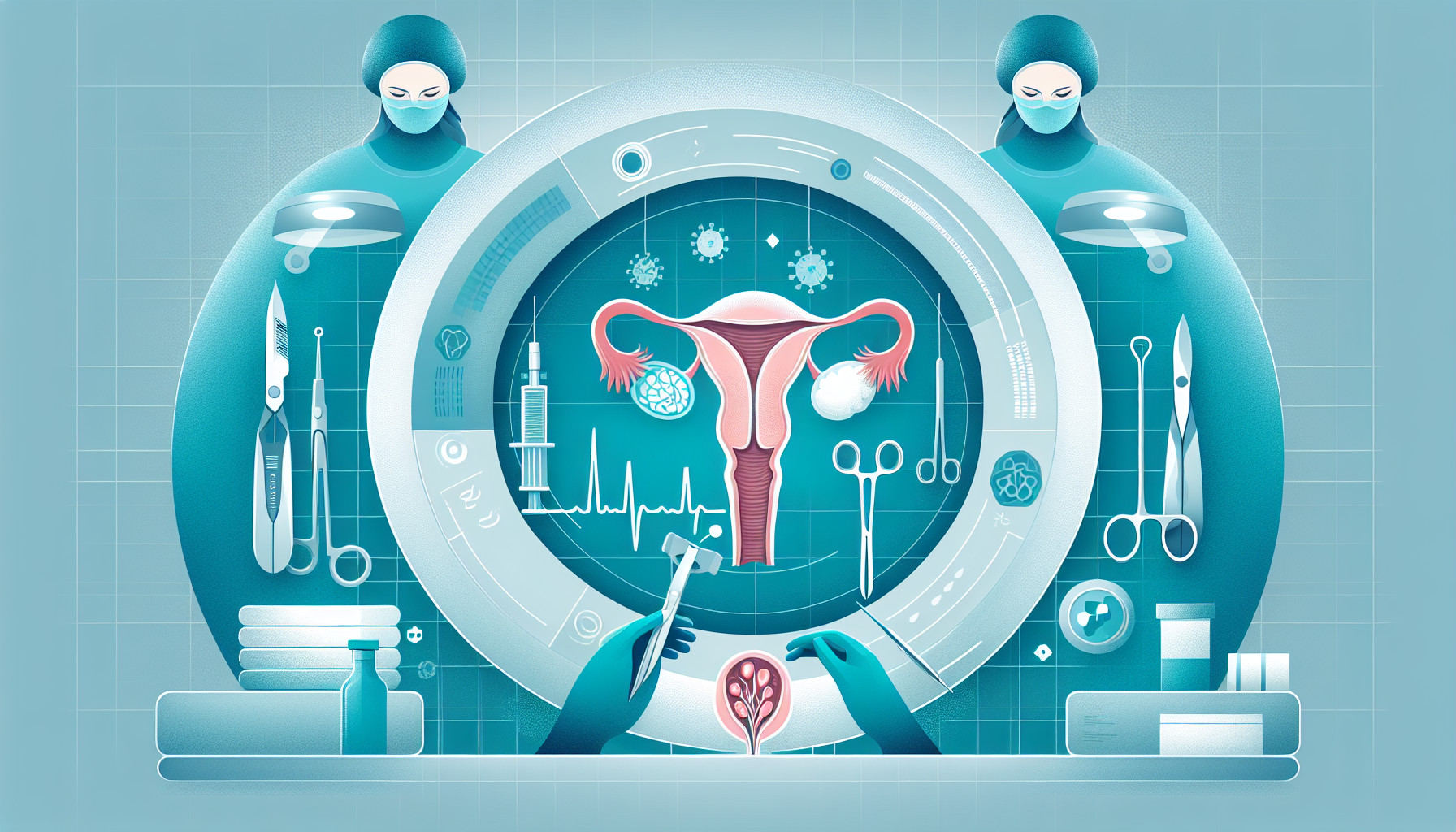Our Summary
This research paper discusses a very rare case where a type of cyst, known as a hydatid cyst, was found in a woman’s uterus and omentum (a fatty layer of tissue inside the abdomen). The woman, aged 32, had come in for treatment due to being unable to get pregnant. The only noticeable abnormality was that her uterus was larger than normal. The doctors initially thought she had a different type of cyst, an ovarian multilocular cyst, based on their tests and scans. However, during surgery, they discovered it was actually a hydatid cyst.
Given the woman’s young age and desire to have children, the doctors decided against radical treatment. Instead, they completely removed the cyst wall and the mass from the omentum. Post-surgery, the woman was given a drug called Mebendazol and is being monitored for any signs of the cyst returning.
FAQs
- What is a hydatid cyst and how is it different from an ovarian multilocular cyst?
- What was the treatment procedure for the woman with the hydatid cyst in this case study?
- What is the purpose of administering Mebendazol post-surgery and what signs indicate the return of a cyst?
Doctor’s Tip
One helpful tip a doctor might tell a patient about ovarian cyst removal is to follow post-operative care instructions carefully to promote healing and reduce the risk of complications. This may include taking prescribed medications, avoiding strenuous activities, and attending follow-up appointments to monitor recovery. It is also important to communicate any unusual symptoms or concerns to your healthcare provider promptly.
Suitable For
In general, patients who are recommended for ovarian cyst removal are those who have cysts that are causing symptoms such as pelvic pain, bloating, or pressure. Additionally, patients who have cysts that are large in size or have the potential to become cancerous are also typically recommended for removal.
Other factors that may influence the recommendation for ovarian cyst removal include the patient’s age, desire to have children, and overall health status. Younger patients who have not yet completed their family may be more likely to undergo surgery to remove ovarian cysts, especially if they are causing infertility or other reproductive health issues.
Ultimately, the decision to remove an ovarian cyst is made on a case-by-case basis, taking into consideration the patient’s individual circumstances and the risks and benefits of surgery. It is important for patients to discuss their concerns and treatment options with their healthcare provider to determine the best course of action for their specific situation.
Timeline
Before ovarian cyst removal:
- Patient experiences symptoms such as abdominal pain, bloating, and irregular menstrual cycles.
- Patient undergoes diagnostic tests such as ultrasound and blood tests to confirm the presence of an ovarian cyst.
- Treatment options are discussed with the patient, including watchful waiting, hormonal birth control, or surgery.
- Surgery is scheduled if the cyst is large, causing severe symptoms, or if there are concerns about the cyst being cancerous.
After ovarian cyst removal:
- Patient undergoes surgery to remove the ovarian cyst, either through laparoscopic or open surgery.
- Recovery time varies depending on the type of surgery performed, with laparoscopic surgery typically having a shorter recovery period.
- Patient may experience pain and discomfort in the days following surgery, which can be managed with pain medication.
- Follow-up appointments are scheduled to monitor the patient’s recovery and ensure that there are no complications.
- Patient may be prescribed medication to prevent the formation of new cysts or to manage any hormonal imbalances.
- Patient may be advised to make lifestyle changes, such as maintaining a healthy diet and exercising regularly, to reduce the risk of developing new cysts.
What to Ask Your Doctor
- What type of cyst was removed and how common is it?
- What are the potential causes of this type of cyst?
- How likely is it for the cyst to return after removal?
- What symptoms should I watch out for that may indicate the cyst is returning?
- How will the removal of this cyst affect my fertility?
- Are there any specific precautions or lifestyle changes I should make post-surgery?
- How long is the recovery process expected to take?
- Will I need any follow-up appointments or tests to monitor my condition?
- Are there any potential complications or risks associated with the surgery?
- Are there any alternative treatment options that could be considered in the future if needed?
Reference
Authors: Bouknani N, Kassimi M, Saibari RC, Fareh M, Mahi M, Rami A. Journal: Radiol Case Rep. 2022 Dec 22;18(3):882-885. doi: 10.1016/j.radcr.2022.10.068. eCollection 2023 Mar. PMID: 36589497
